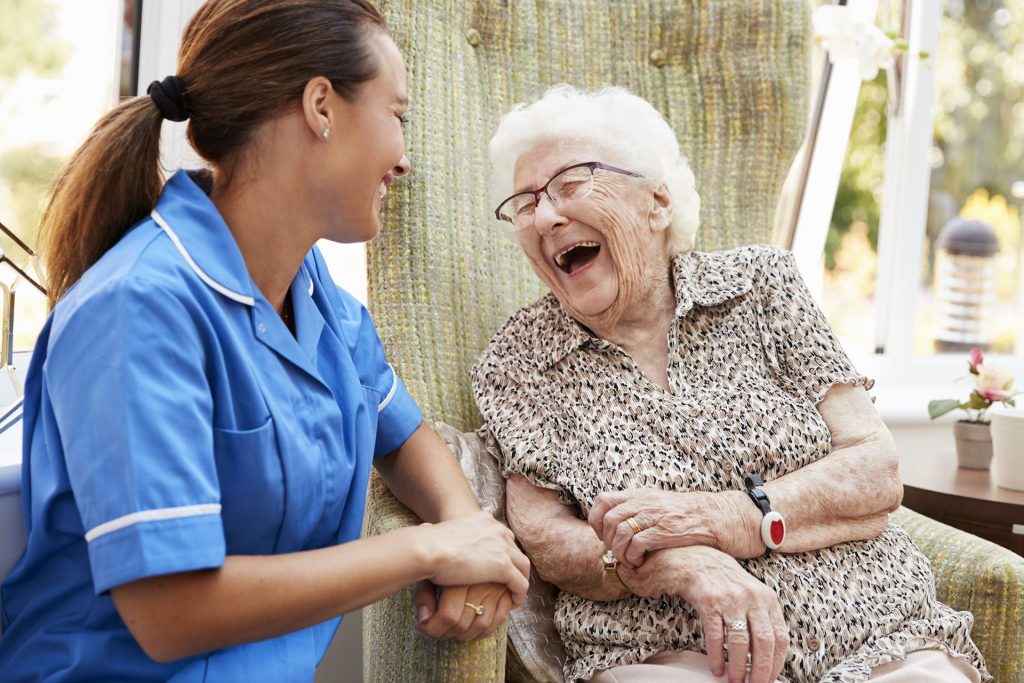
In this episode of Conversations on Care, Open Arms Solution Founder Julie Kollada invites Jessica Bartsch, Community Program Manager at the Parkinson’s Foundation to share their knowledge on the disease and the many resources that are available to help an individual with Parkinson’s and their family to cope with the journey.
Conversations on Care is a Facebook talk show bringing together service providers, clients, and caregivers to help families better understand and cope with an aging parent with chronic care needs.
Parkinson’s disease is a progressive nervous system disorder that affects movement. As Jessica explains, Parkinson’s is the second most common neurodegenerative disease after Alzheimer’s. It affects one million people in the United States, 10 million worldwide, and about 60,000 people get a new diagnosis every year. She also adds that estimates say that generally, more men are affected by the disease than women, and that the average age of people affected is above 60, while early onset Parkinson’s can be diagnosed in people under 50.
A Parkinson’s diagnosis is an overwhelming and life-changing moment for both the person affected and their family. It is a challenge to envision what life will look like moving forward for both the person affected and their family. Jessica speaks from experience, after dealing with the disease through her father. Now, she works for the Parkinson’s Foundation to help create better therapies and care for people, and provide educational resources for the community.
What to do after a diagnosis?
Jessica explains that while a diagnosis is devastating news, at least it gives people a chance to know what they’re dealing with and resources to move forward. One of the most important first steps after a diagnosis is to ask questions. It’s important to ensure that a person with Parkinson’s still gets to live their best life and to find the ways they can do so.
The Parkinson’s Foundation has created a folder with five important steps for newly-diagnosed people to help them get started on their journey.
- Step one is to think about what’s important to the person affected by Parkinson’s disease. It’s essential to keep living the life they’re living, so thinking about what is most important to them and creating an action plan for how they can keep doing the things they love is crucial.
- Step two is to find someone to talk to. Jessica explains that many people with Parkison’s disease may get uncomfortable with the way they look and therefore become isolated. In order to avoid this and stay social, it’s important to find the right person to talk to, whether that’s a family member, a friend, or people in a support group who are going through the same thing. Talking about the disease and exchanging experiences may be highly beneficial.
- Step three is to create healthy habits. People with Parkinson’s should live by a set of rules to better manage their disease, including getting enough sleep, following a healthy diet, and getting enough exercise. Jessica adds that there are actually certain diets recommended for people living with Parkinson’s, such as a Mediterranean diet, so explore your options.
- Step four is to be active in whatever way you can. Being vigilant about getting adequate exercise is important. Setting goals can be useful—whether it’s walking to the end of the street and back or around the block, it’s important to include daily exercise in your routine.
- Step five is to find a doctor who’s an expert in Parkinson’s. Locate a movement specialist or a neurologist with an interest in the disease who can be your partner in crime on your journey. If you need any help, visit this website to find professionals in your location.
Finding the right caregiver
After a diagnosis, finding a caregiver or a care team to address the different challenges of the disease will be hugely beneficial. Jessica and Julie both explain that the most important part of finding the right caregiver for your loved one with Parkinson’s is to put their specific needs at the forefront.
The caregiver’s most important job will be to validate your loved one’s feelings and be a great listener, as they will definitely need someone to talk to after receiving the devastating diagnosis. Besides offering companionship, a professional caregiver can also monitor the progress of your loved one’s condition, take them to doctor’s appointments, and help with daily tasks and minor housekeeping duties.
Learn more about the Open Arms Parkison’s Care program in Chicago.
For more details about how cooperating with a caregiver can be beneficial, read our article on how an in-home caregiver can help you take care of your loved one.
Moving Day Chicago
In the video, Jessica shares that if you’d like to support the work of the Parkinson’s Foundation, you can join Moving Day, an inspiring and empowering fundraising walk event that unites people around the country living with Parkinson’s disease, their care partners, and loved ones. Find more details here.
Jessica and Julie discuss many more interesting topics related to Parkinson’s disease, as well as answering intriguing questions from the audience. If you’d like to catch up on the entire conversation, you can watch the video below.
Have a specific question related to Parkinson’s? Reach out to the Parkinson’s Foundation Helpline at 800-473-4636.
If you’d like to find out more, like our Facebook page and subscribe to our YouTube channel to ensure you don’t miss the next episode of Conversations on Care. If you join the conversation live, you can ask questions and request topics every other week on Facebook or YouTube.


